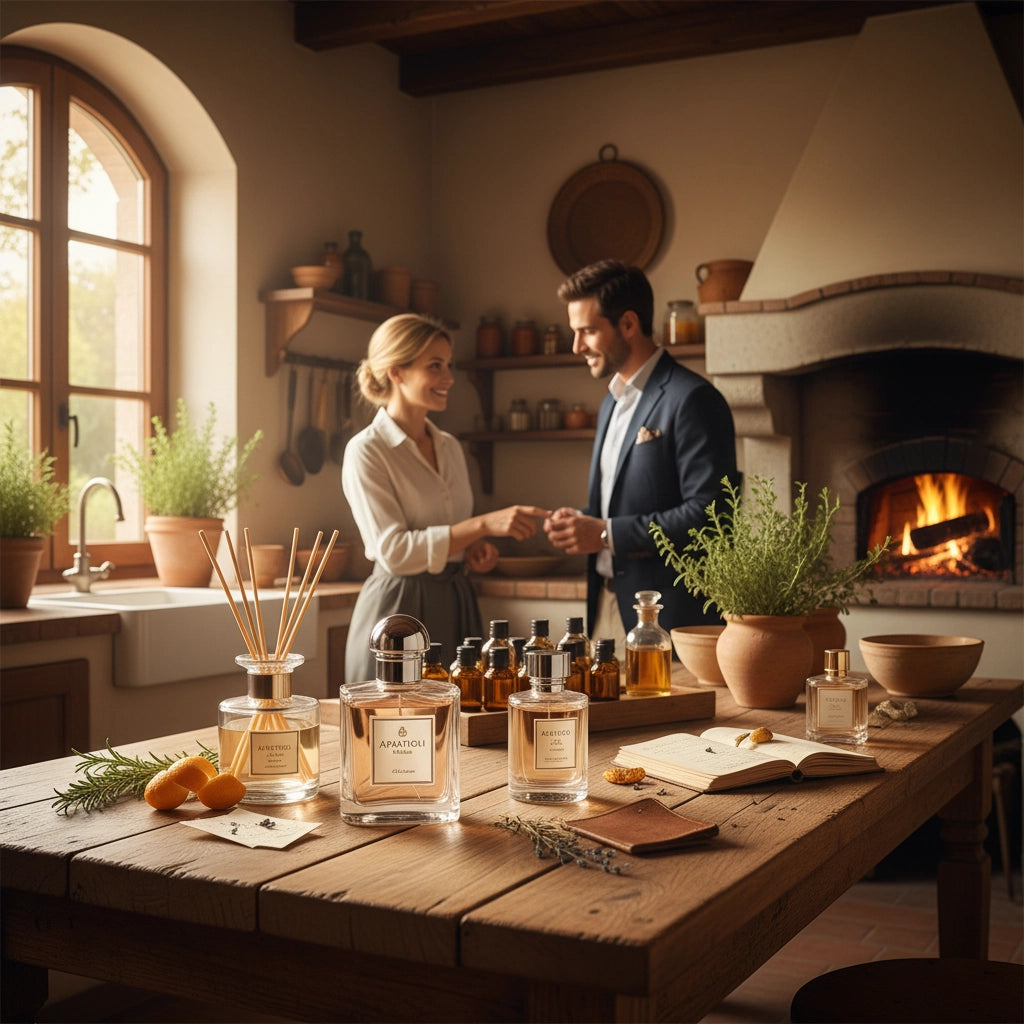
Private Label Luxury: How Brands Partner with Apastioli to Launch Signature Scents
Share
There's something almost mystical about the moment when a fragrance first takes shape: when disparate notes of bergamot, vanilla, and rose suddenly coalesce into something that tells a story, evokes a memory, or captures the essence of a brand's identity. At Apastioli, this magical transformation happens through a deeply collaborative process that has elevated the art of private label fragrance development into something far more meaningful than simple contract manufacturing.
What began as a Southern-born Italian food company, rooted in handcrafted sauces and authentic storytelling, has evolved into a full-service fragrance partner that brings the same passion for craft and authenticity to the world of luxury scents. This expansion wasn't accidental: it was born from understanding that both food and fragrance touch our most primal senses, creating lasting emotional connections that transcend the products themselves.
The Apastioli Philosophy: More Than Manufacturing
When brands partner with Apastioli for private label fragrance development, they're not simply working with a manufacturer: they're collaborating with storytellers who understand that every scent should have soul. This approach stems from the company's core belief that products should be mission-driven, whether they're crafting artisanal Italian sauces or developing bespoke fragrances.
The Apastioli fragrance collection exemplifies this philosophy, with scents inspired by "stories of faith, resilience, and refined living." Each fragrance becomes a chapter in a larger narrative, designed not just to smell beautiful, but to connect with the wearer on a deeper emotional level. This same storytelling approach infuses every private label partnership, ensuring that custom fragrances don't just fill bottles: they fill hearts and minds with meaning.
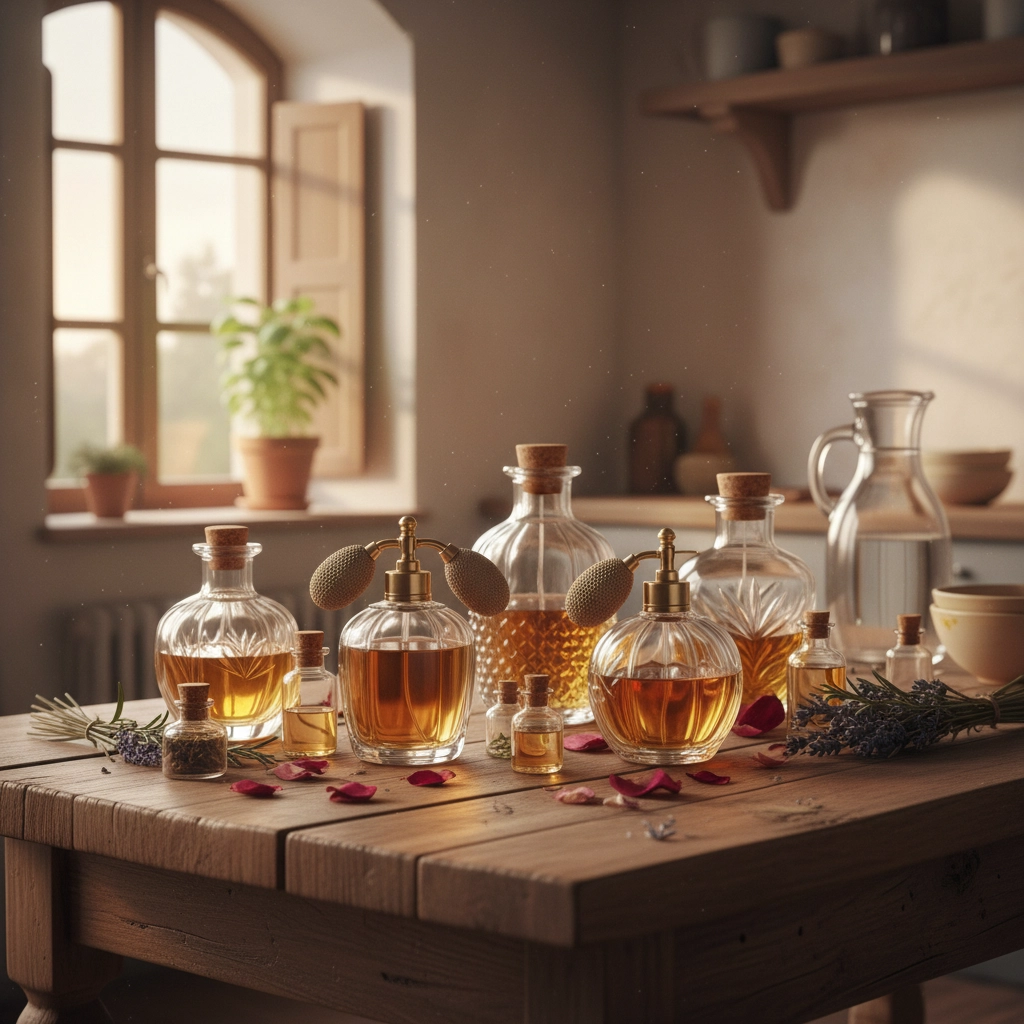
Step One: The Discovery Phase
Every successful fragrance partnership begins with discovery: not just of scent preferences, but of brand soul. During initial consultations, the Apastioli team dives deep into understanding what makes a brand unique. What stories does it tell? What emotions does it evoke? What memories should the fragrance create?
This phase often feels more like therapy than product development. Brand representatives find themselves sharing childhood memories, describing pivotal moments in their company's history, or explaining the feeling they want customers to experience when they encounter their products. These conversations become the foundation for fragrance development, ensuring that every note chosen serves the larger narrative.
For boutique brands, this might mean capturing the essence of a physical location: the salt air of a coastal shop, the warm wood tones of a mountain lodge, or the vibrant energy of an urban marketplace. Corporate clients might seek to bottle their brand values: innovation, luxury, accessibility, or heritage. Each conversation reveals new layers that will eventually translate into olfactory experiences.
Step Two: Concept Development and Storytelling
Once the emotional landscape is mapped, the real artistry begins. Apastioli's approach to concept development mirrors their success in the food industry, where each sauce tells the story of Italian tradition meeting Southern hospitality. In fragrance, this translates to creating scent profiles that honor both the brand's heritage and its aspirations.
The concept development phase involves creating what industry professionals call a "scent story": a narrative arc that explains how the fragrance will unfold on the wearer's skin. Top notes provide the opening chapter, middle notes develop the plot, and base notes deliver the satisfying conclusion. But unlike traditional fragrance development, Apastioli's process ensures every chapter serves the brand's larger story.
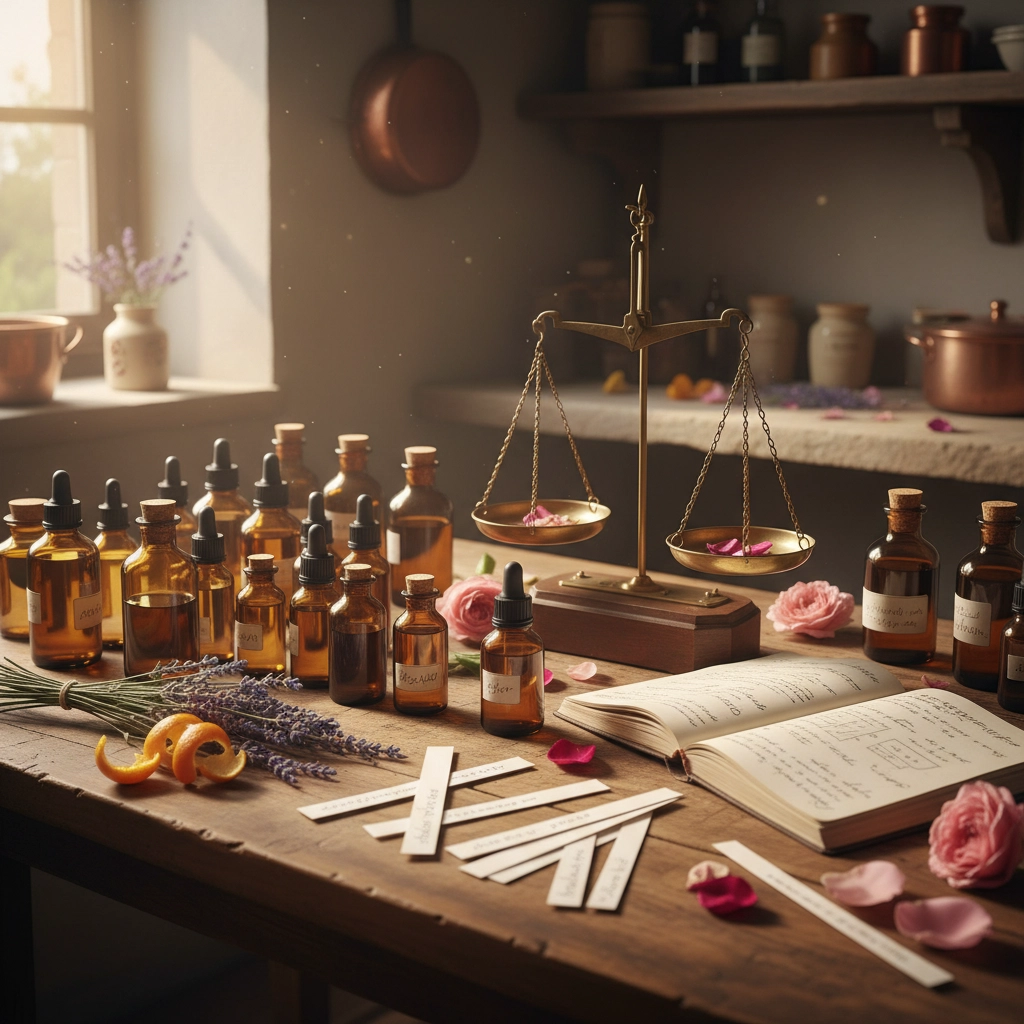
Step Three: The Blending Process
The actual creation of custom fragrances happens in small batches, honoring Apastioli's commitment to handcrafted quality. This isn't mass production: it's artisanal creation that allows for constant refinement and adjustment. Master blenders work with an extensive palette of essential oils, aroma compounds, and natural extracts, each carefully selected for both olfactory impact and storytelling potential.
During this phase, partners are invited into the creative process through scent samples and iterative feedback sessions. It's not uncommon for a fragrance to go through dozens of variations before reaching its final form. This collaborative refinement ensures that the end result truly captures the brand's essence rather than simply meeting generic market expectations.
The blending process also considers practical factors like longevity, projection, and skin compatibility, but these technical requirements never overshadow the creative vision. Each adjustment maintains the fragrance's narrative integrity while optimizing its performance as a luxury product.
Step Four: Testing and Refinement
Real-world testing separates good fragrances from great ones. Apastioli's testing phase involves multiple rounds of wear-testing under various conditions, ensuring the fragrance performs consistently across different environments, seasons, and skin types. This phase often reveals subtle adjustments needed to perfect the scent's evolution throughout the day.
Focus groups provide valuable feedback during this stage, but Apastioli maintains that the most important test is emotional resonance. Does the fragrance make people feel the way the brand intended? Does it evoke the desired memories or aspirations? These qualitative measures often prove more valuable than quantitative performance metrics.
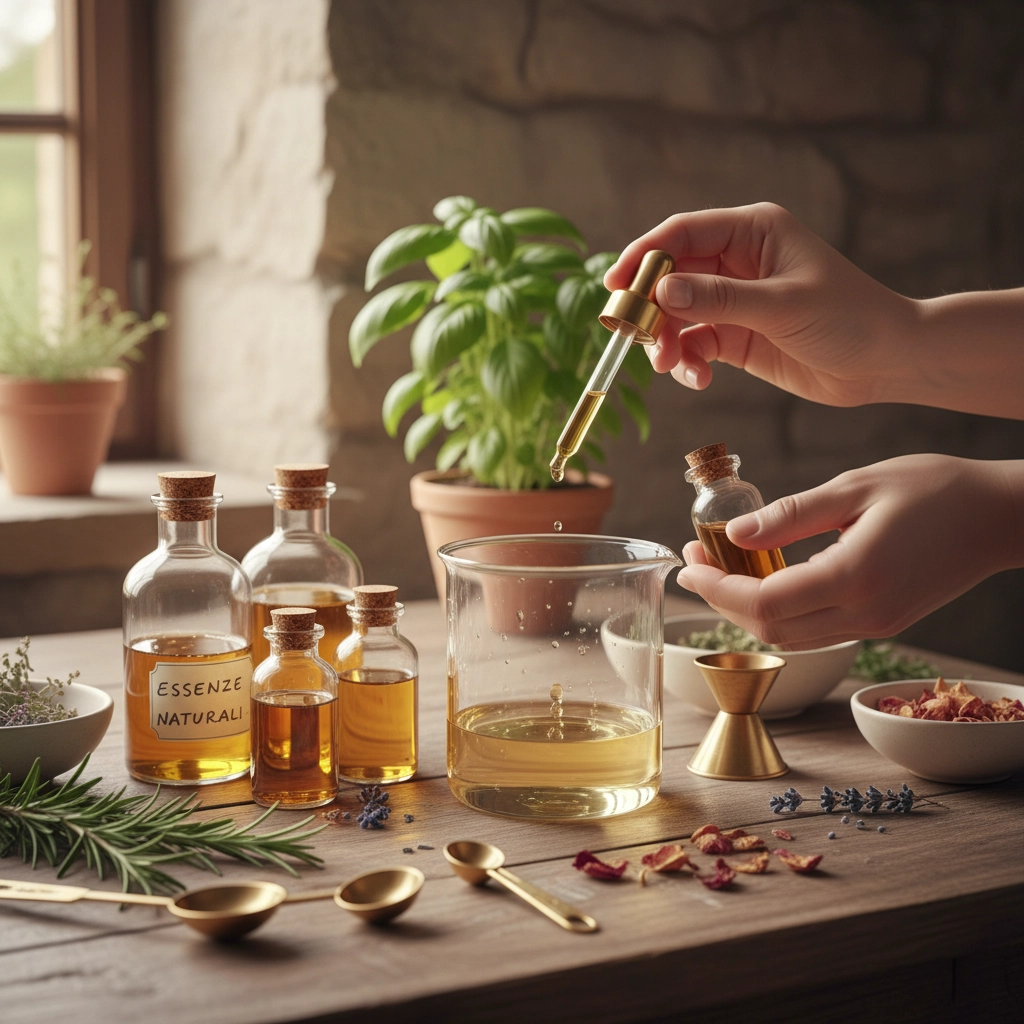
Step Five: Packaging and Brand Integration
The fragrance development process extends far beyond the liquid itself. Apastioli works with partners to ensure that packaging, labeling, and presentation materials align with both the scent's story and the brand's visual identity. This might involve custom bottle designs, unique packaging materials, or innovative presentation formats like travel-sized options or subscription services.
For brands seeking to integrate fragrances into existing product lines, this phase requires careful consideration of how the scent complements other offerings. The fragrance should feel like a natural extension of the brand family rather than an unrelated addition.
Step Six: Production and Launch Support
When the fragrance reaches its final form, Apastioli's production capabilities ensure consistent quality across batch sizes that suit different business models. Whether a partner needs 100 bottles for a boutique launch or 10,000 units for a major retail rollout, the same attention to detail and handcrafted quality standards apply.
Launch support often includes guidance on fragrance marketing, storytelling strategies, and customer education. Because Apastioli understands that fragrance is deeply personal, they help partners develop communication strategies that invite customers into the scent's story rather than simply promoting product features.
Success Stories: Learning from La Cascata
Apastioli's own fragrance line provides insight into their capabilities and approach. "La Cascata," their Vanilla Orchid and Rose women's fragrance, demonstrates the company's ability to create scents that are both sophisticated and accessible. Described as "elegant and radiant," the fragrance exemplifies their commitment to creating products that enhance the wearer's sense of self rather than overwhelming it.
The success of La Cascata and other Apastioli fragrances proves that their private label approach can translate brand values into olfactory experiences that resonate with consumers. The same attention to storytelling, quality, and emotional connection that makes their own fragrances successful becomes available to private label partners.
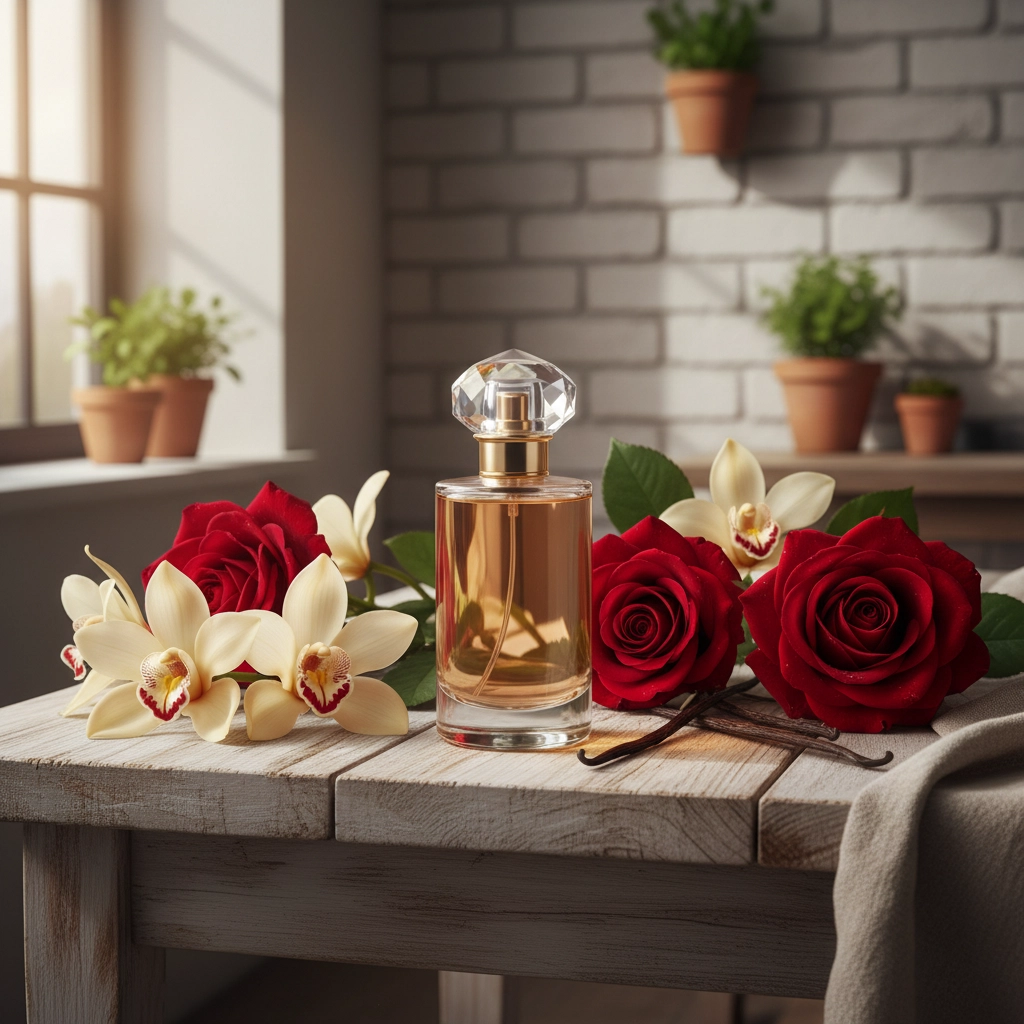
The Collaborative Advantage
What sets Apastioli apart in the private label fragrance space isn't just their technical capabilities or quality standards: it's their understanding that great fragrances emerge from true collaboration. They don't simply execute fragrance briefs; they partner with brands to discover scent stories that might never have been imagined without this collaborative process.
This partnership approach means that brands often end up with fragrances that exceed their initial expectations, not because Apastioli ignored their requirements, but because the collaborative process revealed possibilities that weren't apparent at the outset. The best fragrance partnerships feel less like vendor relationships and more like creative collaborations between artists who share a vision.
Beyond the Bottle
The fragrance industry continues evolving toward more personal, meaningful products that reflect individual and brand identities rather than mass-market trends. Apastioli's approach to private label development positions their partners at the forefront of this shift, creating fragrances that build genuine connections with customers rather than simply occupying shelf space.
For brands considering fragrance as part of their product portfolio, the partnership with Apastioli offers more than manufacturing capability: it provides access to a creative process that transforms brand values into sensory experiences. In a market increasingly focused on authenticity and emotional connection, this approach to fragrance development provides a sustainable competitive advantage that extends far beyond the initial product launch.
The journey from inspiration to shelf represents just the beginning of what becomes possible when brands commit to fragrance as storytelling rather than simply scent as commodity. Through Apastioli's collaborative process, private label fragrances become powerful tools for brand expression, customer connection, and business growth.
